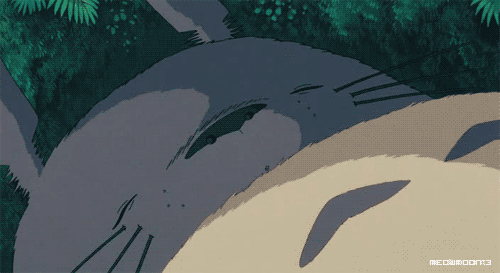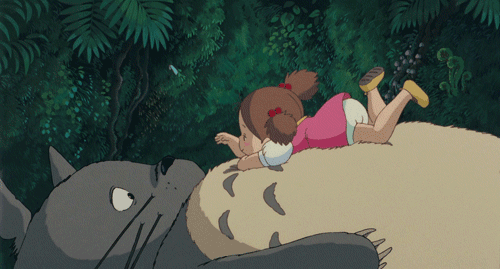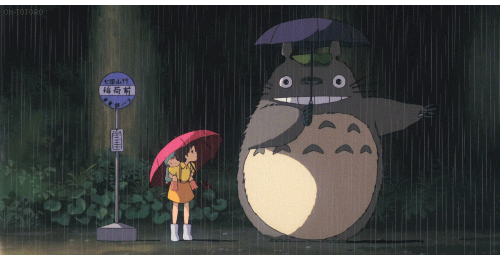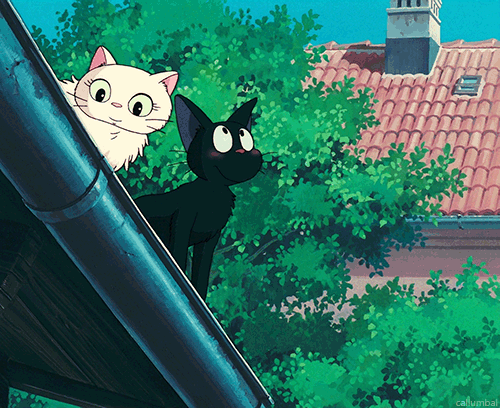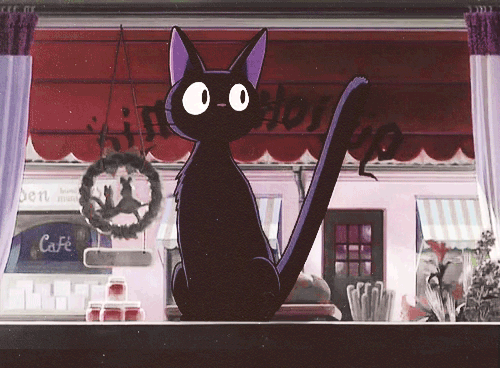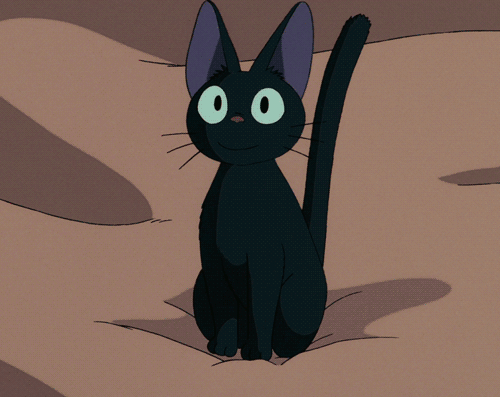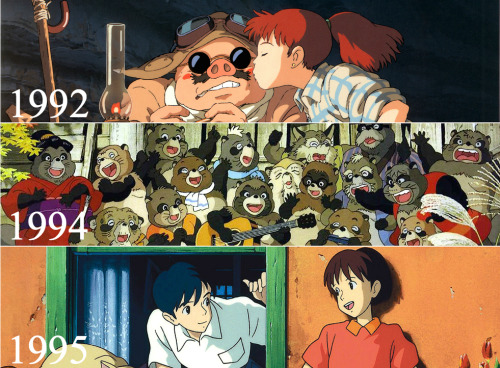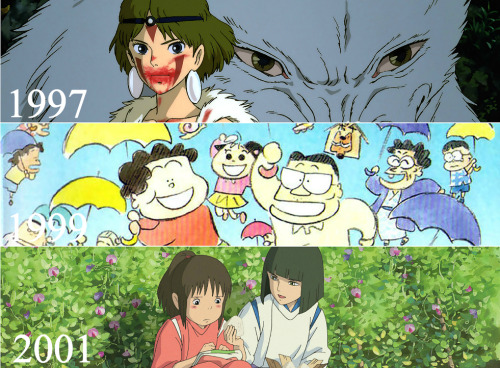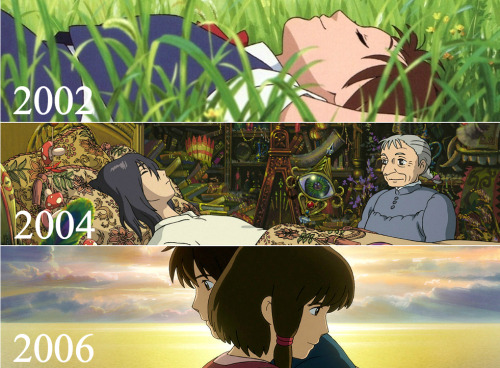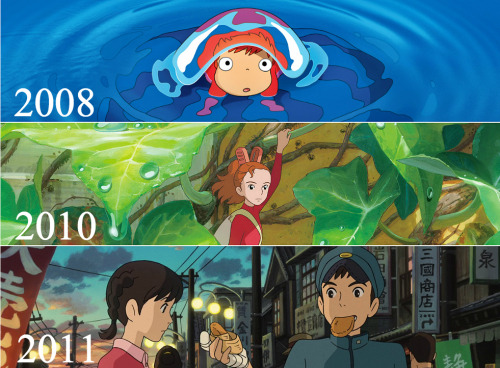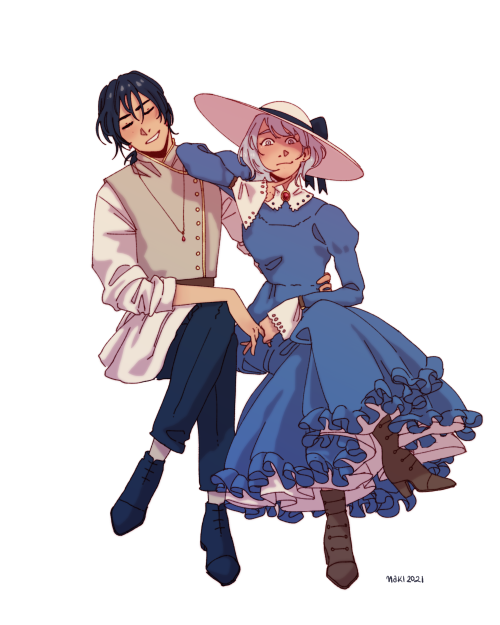#ghibli films
My Neighbor Totoro(Japanese: となりのトトロ Hepburn:Tonari no Totoro?) is a 1988 Japanese animated fantasy film written and directed by Hayao Miyazaki and produced by Studio Ghibli. The film – which stars the voice actors Noriko Hidaka,Chika Sakamoto, and Hitoshi Takagi – tells the story of the two young daughters (Satsuki and Mei) of a professor and their interactions with friendly wood spirits in postwar rural Japan. The film won the Animage Anime Grand Prix prize and the Mainichi Film Award for Best Film in 1988.
Post link
Jiji in Kiki’s Delivery Service, 1989
魔女の宅急便, Majo no Takkyūbin
Kiki: “We can fly with our spirit.”
Did you know? Kirsten Dunst voiced Kiki in Disney’s 1997 English dub, released in 1998.
Post link
yet another howl and sophie post movie i guess, i wanted to give a spin on their classic clothes, white shirt - black pants and blue dress but i can’t not give sophie her final-scene-white-hat
Also ruffles. Just…. ruffles.
Post link
Japanese with Studio Ghibli - From Up on Poppy Hill

From Up on Poppy Hill is one of the first Studio Ghibli movies I have ever seen, probably the second after The Secret World of Arrietty. It is a quiet, peaceful story of everyday’s life and romance, set in the beautiful scenery of Yokohama.

The movie’s title in Japanese is コクリコ坂から(Kokuriko-zaka kara, From the Hill of Poppies):
- コクリコ(Kokuriko) means “poppies”. You may have noticed that it is written in katakana: that’s because it is a loanword, from the French word for poppy, Coquelicot. I don’t know if there’s a Japanese word for this flower, nor if the flower was already known in Japan before it came from Europe…
- 坂(zaka)means “Hill”. Interesting enough, the name “Poppy Hill” seems to come from the name of the boarding house where the main character Umi and her family live, Coquelicot Manor. I initially thought “Poppy Hill” was the name of a neighborhood in Yokohama :)
- から means “from” when put at the end of a noun. This word is mantained in the English title From Up on Poppy Hill, while it is omitted in the Italian title (yep, Italian is my first language) La Collina dei Papaveri, “The Hill of Poppies”. Anyway, I like all of them :)
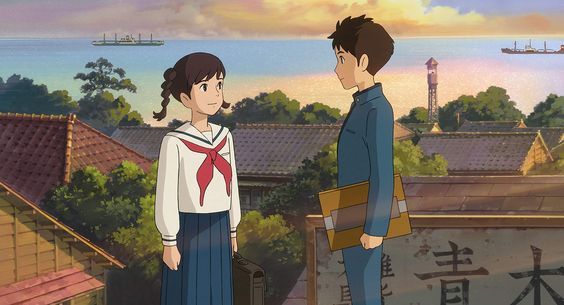
As I said, this movie shows glimpses of everyday’s life in Japan, therefore it is well suited to learn some common expressions, like the following:
- ただいま!(Tadaima!) : “I’m home”
- お帰りなさい / お帰り (Okaerinasai / okaeri) : “Welcome back (home)”. From what I’ve seen 帰る(kaeru) means something like “return, go back, go home”.
- 行ってきます(Ittekimasu): “I’m off, I’m leaving” (行is the kanji for “go”)
- いただきます(itadakimasu): polite expression you use before starting a meal. It’s very difficult to translate (but many attempt to do it on the web, if you want to know more about this word)

This movie is also a good way to learn/review some vocabulary about the family, since families, and the relationship between parents and their children is a main theme of the story. Those are some of the words about family I recognized:
- お母さん(okaasan): “mother, mum”
- お父さん(otousan): “father, dad”
- 子(ko): “child” can be either son or daughter
- 息子(musuko): “son”
- おねえちゃん(oneechan): “big sister”.
- 兄弟(kyoudai): “siblings, brothers”

Those are just a few examples, the words that I noticed either because often repeated throughout the movie or because I already heard them in my Japanese course. Anyway, if you have the chance to watch this movie, take it, and enjoy this sweet story while learning (or reviewing) Japanese vocabulary!
P.S.: I am learning Japanese as an amateur, by exploring this language and its culture and making new discoveries every day. This means that I am not fluent in Japanese, and that I can make a lot of errors! If you are a native speaker or a student already fluent in the language, feel free to point at errors in the post, and I will correct them as soon as possible!
Pictures:FROM UP ON POPPY HILL (2011), by Goro Miyazaki, STUDIO GHIBLI.



When Marnie Was There (Studio Ghibli 2014)
12 x 9" watercolor, inks

Prince Ashitaka and Yakul
3 x 5.5" watercolor, inks

San and her siblings from Princess Mononoke
5 x 8.5" watercolor, gouache, ink, salt

too many tasks… ʕ•ᴥ•;ʔ

I am here for you ♡♡♡

why did you go?ʕ·ᴥ·ʔ?

Very boring (>⌓<)






howl’smovingcastle!






spiritedawayheaders!









ghiblifilmsheaders









⛩prettyghibliheaders
Ghibli Redraw


I had to do this trend I saw on Tiktok! I was supposed to redraw a scene from a ghibli movie with my lover! ✨




Little bento in my new series ‘Miniature food from movie’
Do you know what movie does it come from?
Redraw of Howl’s Moving Castle ❤️


